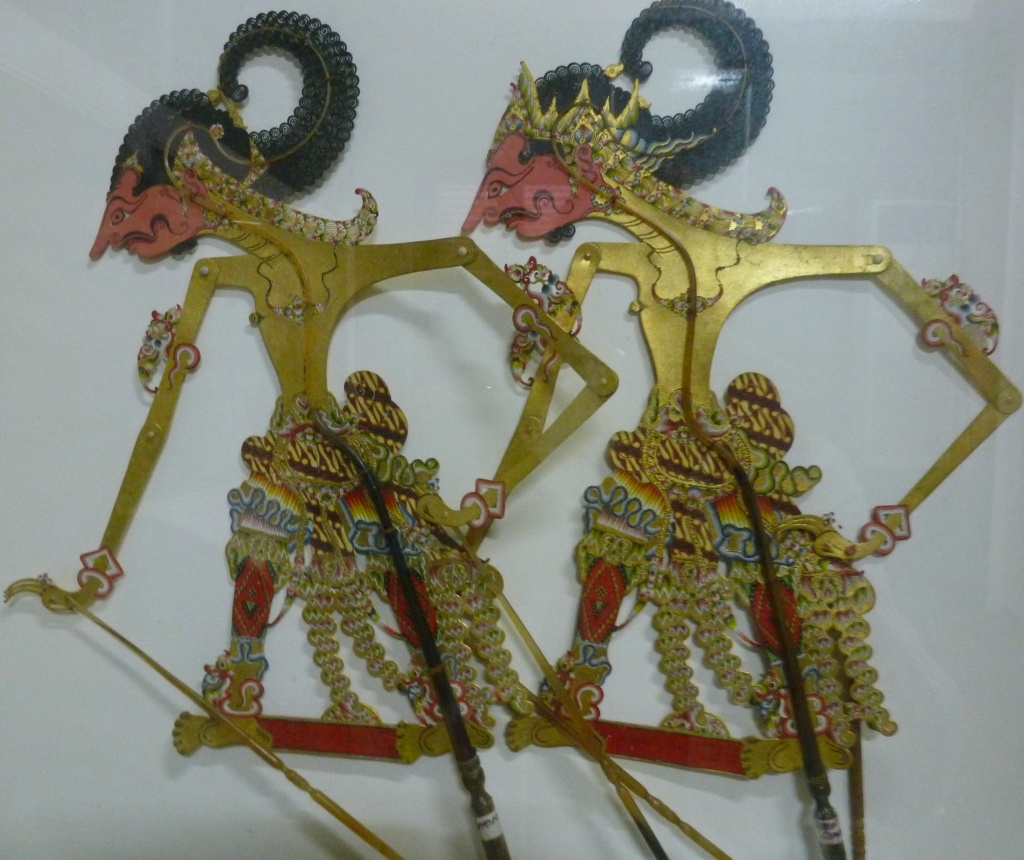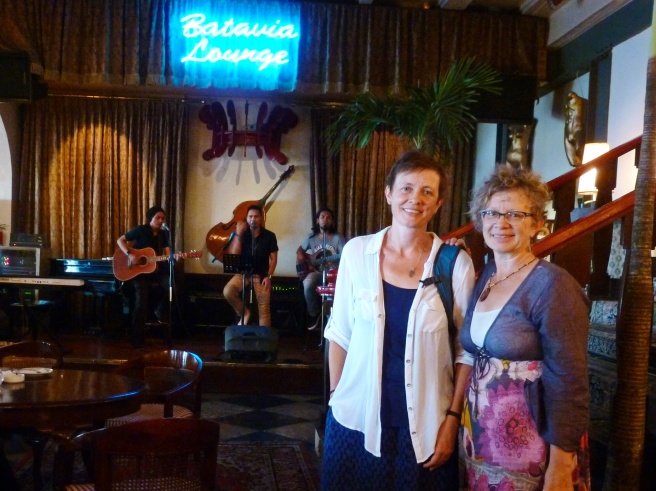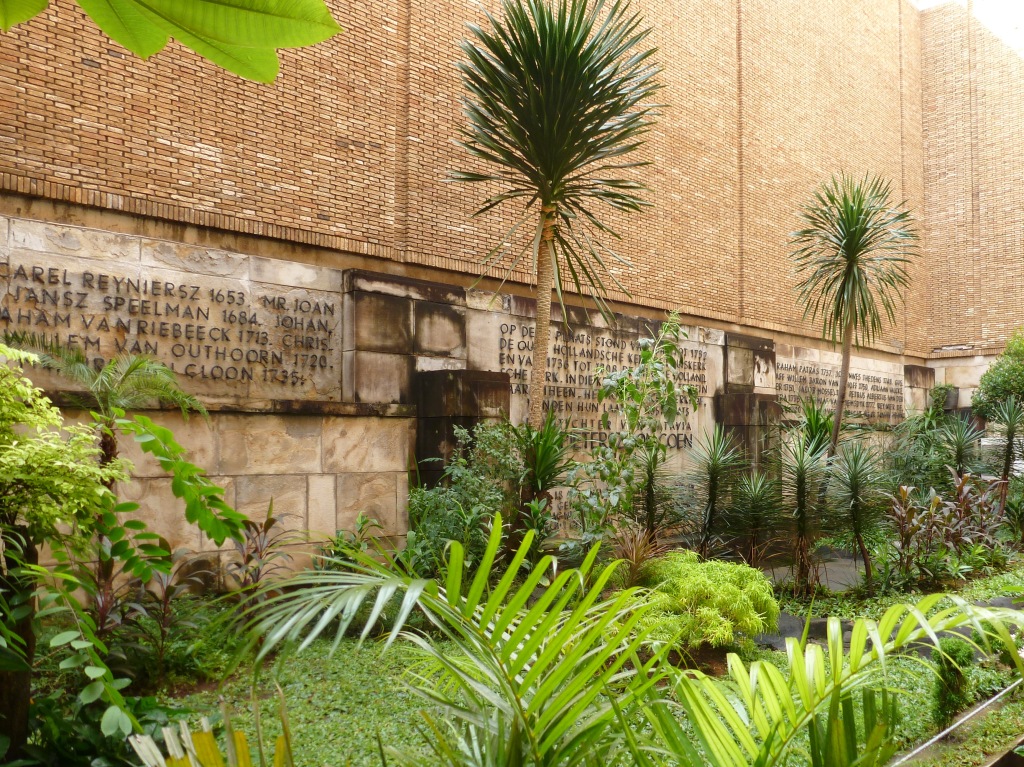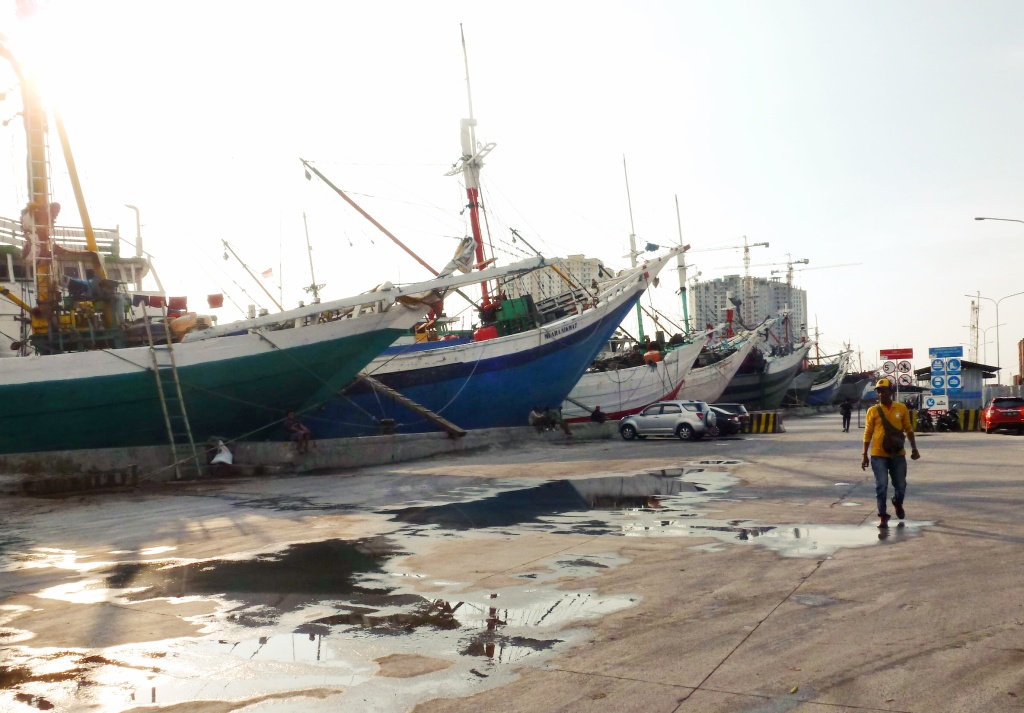July 16th, 2016: Jakarta day 2
This morning we navigate the Jakarta bus system back to Old Batavia and head off with stern warnings to one another to remember how to get back to our bus stop. Under the street and back through the market. Easy-peasy.
On one side of the square is the famous Cafe Batavia. You were here Dad, in this very cafe, and later in other canteens in Bandung where you saw a very white man with snow white hair in an impeccable white suit playing a cello. “He looked like death itself,” you said. “But then he played.”
It was the first cello you’d ever heard and you fell in love with that music. It gave you an escape from what you didn’t understand about the war you’d been sent to fight, gave you peace, especially when you closed your eyes and listened. Seventy years later you still remember the old man and the cello.
We sit at a table with our coffee and take it in while out the window there is a sudden deluge. People scatter from the busy square to stand under awnings and overhangs to wait it out while six inches of water turn the area into a swimming pool. Daredevil children laugh and wade in to swim and cool off. As quickly as the rain started it stops, the sun beams down, the square drains and the people resume their day. As do we.

In a place of such population density, you might assume a certain impatience with such interruptions. Instead I am struck by a seeming acceptance of inconveniences, a patience I struggle to possess for things not ideal but inevitable; rain, traffic, a flat tire. And amidst the throngs one might also assume indifference to others.
It is my mistake to think the people wary, imagining they don’t trust a belanda like me to engage in normal friendliness. Maybe it’s a prairie thing–the two fingered wave and all that–but I can’t not smile. And I discover that a smile given is a smile received, faces beaming back at me unguardeded, almost joyful. “Hallo” the people say, followed by instant offers of help we don’t need. Yet.
Outside the church that houses the Wayang Museum we find a nod to colonial missionary zeal in crypts subtley hidden and carved with the names of the dead. It’s a bit eerie, like the list on the wall and the existence of the church have nothing to do with one another. But I suppose at this point they don’t.
And then we walk, and walk, and walk, determined to get a closer look at the seven sailed masts of the famous Bugis pinisi boats we’ve heard about, their hulls appearing stacked against the docks in the distance.
“You can’t be here,” a sailor in a hard hat says as he walks toward us. He looks very puzzled. Of course he does; we are two women in goofy hats, sweating profusely, faces and feet equally dirtied by the long walk. Perhaps the menacing signs on the chain link fence should have been warning enough. He is very kind; firm but kind. “You can’t be here.”
“But we’d like to see the harbour,” I say in a combination of the little Indonesian I tried to learn in the months before our trip, some stilted English and hand gestures. He laughs and tells us it is fifteen kilometers to the mouth of the harbour. “Oh.”
Still… although these boats are not in the actual harbour they are beautiful. I imagine the men who carry large drums and heavy sacks up a nearby plank might be stocking the ship with supplies for the next trip across the Java Sea to Sumatra or Flores or Kalimantan, or any of the other 17,000 islands that make up the archipelago.
We turn and walk and walk and walk, back to the old Kota area and the bus stop. Where is the bus stop? It’s over there in that roundabout thing below street level, but how do we get there? Shit, shit, shit. Tired but determined, I hike my skirt and step over a barrier designed to keep me safe, cross the insanely busy street and stand looking down at the bus terminal while cars whizz behind me.
A small van stops in the midst of the circling traffic below, a young man looking up at me confused. “What are you doing?” he hollers.
“The bus stop. How do we get to the bus stop?”
He gestures wildly to a spot behind me and down the street, mimics something by repeatedly plunging his left hand under his right forearm. He confers with his buddy. “Under, you go under,” he hollers.
“Oh yeah, we forgot,” I holler back.
He looks at me as though I am the most absurd human he’s ever seen. I likely am, standing in the middle of eight lanes of zipping traffic, gesticulating and hollering in English. But he shrugs and carries on. And so do we, back to the corner, under the street and through the market, just like we’d reminded one another when we set out on this day. Easy-peasy.
Later we lie in our bed in the weak air-conditioning of the guest house and laugh and laugh.
“What are you doing?” Wilma mimics, and we burst into giggles, the blisters on our feet and heat rash in our elbow creases momentarily forgotten.
We are only beginning to find out.



Lovely😊